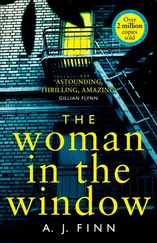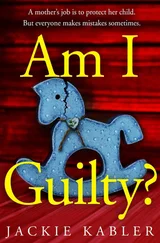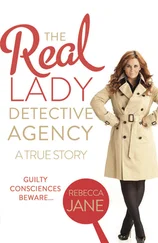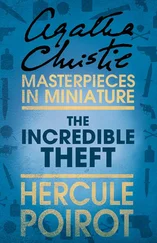1 ...6 7 8 10 11 12 ...17 ‘Up to bed, children,’ I say softly. ‘Cook will bring you some cocoa.’
The children retreat, sloping upstairs like kittens in the rain. It troubles me to see the spirit pinched out of them. It troubles me how fast the captain’s temper caught light. Now he bids us goodnight and slips away to another part of the house.
‘The captain prefers the children to be seen and not heard,’ says Mrs Yarrow.
‘Yes,’ I say. ‘I rather got that impression.’
*
Morning arrives with a burst of sunshine. I wake in my four-poster bed, shrugging off a deep, dreamless sleep, the likes of which I haven’t had since before the war, and go straight to the window to welcome the day. Despite the thick drapes, sunlight razes through the cracks like an outline of fire. I pull them open and let it in. The sea is green today, light, sparkling green, and the sky above a hazy blue. I prise open the window, a hook on a rusted latch, and a draught of fresh, salty air hits my nostrils. I feel like a girl on Christmas morning. I cannot wait to see the twins once more.
When I tie back the curtains, I spy that painting again – the little girl looking out of the cottage. She has one hand flat against the panes, a detail I hadn’t noticed yesterday. The hand is raised as if in greeting or acknowledgement. Or warning.
A bell sounds downstairs. It makes me jump. I feel as I did at Burstead, late for breakfast, the house matrons stalking the corridors with their starched bosoms and shrill whistles. ‘ Come on, Miller! Get dressed, Miller! What are you doing, girl? ’
In minutes I’m downstairs – but the bell wasn’t for me, of course, it was for the children. Mrs Yarrow has bowls of porridge steaming on the table, decorated with honey and walnuts. ‘Did you sleep well, miss?’ she asks me.
‘Very well, thank you.’
‘You didn’t hear the dogs?’
‘What dogs?’
‘We’ve got a wandering madcap,’ she rattles cutlery out of a drawer, ‘Marlin, they call him. Well, he’s got these giant hounds and walks them on the cliffs at night.’ She lays the spoons on the table. ‘God knows why, miss. And they make the most terrible noise, howling and yowling and yelping at the moon. It used to keep Madam awake something rotten. The children, too, when they were babes. Luckily he doesn’t come as close to Winterbourne as he used to, since the captain and he had words. But do you know what this man Marlin said to the captain? He said: It’s your house that makes my dogs afraid. It’s your house that’s the trouble. So the captain says not to bother walking them round here again, if that’s the way he feels. But still he does.’
‘Is he a local man?’
‘Lived here for years. Not the most sociable person you’ll meet.’
‘I do like dogs. What breed are they?’
The cook goes to the bell a second time, rings it. ‘You won’t like these ones, miss. These aren’t right. They’re great snarling things with huge teeth, and paws that could fell a man in a stroke. To think of them being scared by a big old house is a nonsense. The captain chooses not to let it vex him, but I hate to hear them at night.’
‘I didn’t hear them.’
She turns her back. ‘You must have slept soundly.’
We are interrupted by the children’s arrival, a tornado of gold and copper and neatly pressed shirts and shorts, a frill of dress, twinkling eyes and gracious smiles. ‘Miss Miller! Alice! See, I said we didn’t dream her!’ In the glow of the kitchen, Constance and Edmund appear even more adorable than they did last evening.
Constance takes my hand, her small, perfect fingers looping through mine.
‘Father said we’re not to touch her,’ says Edmund. ‘Remember?’
‘Alice doesn’t mind,’ says Constance, ‘do you, Alice?’
‘I won’t break.’
‘Constance breaks all her toys,’ says Edmund. ‘That’s why I won’t let her play with any of mine. Especially my locomotives.’
‘I do not!’ objects the girl.
‘Chop-chop, children,’ says Mrs Yarrow, encouraging them to sit. ‘Miss Miller will want to get on with your lessons this morning. Eat your breakfast first.’
‘I can eat one-handed,’ says Constance. ‘I’m not letting go.’
I ought to deter her, follow the captain’s rules. But there is such charm about her, about them both, that I am happy to be held.
I’m not letting go.
I was told that before, in another life, when I was another girl. It’s not an easy thing to hear, neither is it easy to resist. And I was let go, wasn’t I? Our hands parted, and I fell.
*
Thus far the children have been educated in an upstairs bedroom, one of the many chambers at Winterbourne that otherwise go unused. On seeing the forlorn space, a dark turret with the oppressive atmosphere of a sanatorium, I immediately decide to relocate. ‘Oh, I never liked it,’ agrees Mrs Yarrow, as she helps Tom and me carry the desks to the drawing room. As the stand-in between governesses, she’d been employed short-term in the twins’ tutelage. ‘Too dingy, and the children kept complaining of coughs and chills. Besides, I could feel her watching me all the time.’
‘Her?’
‘The woman who was here before you,’ Mrs Yarrow says quickly, under Tom’s dissatisfied glare. ‘She had her ways of doing things. That’s all.’
‘What sort of ways?’
‘Oh, nothing, nothing important…’
‘Is this very well for you, miss?’ Tom squares the desks so they’re facing the window. ‘Will you need anything else?’
‘Thank you, Tom, that will be all. Children should be educated in a good light, don’t you agree, Mrs Yarrow? I want Edmund and Constance to feel inspired by our lessons, and where better place to start than with a fine view of nature.’
‘Right you are.’
And I must admit, an hour later, I am feeling positive about our progress. The de Grey twins continue to amaze me in their enthusiasm, their confidence, and their understanding that whatever they know is a mere grain when set against what still remains to be found. They are unfailingly polite, amenable characters with a zest for learning, making my job no less than a pleasure. I had worried, slightly, for the educative aspect. I had been honest about my lack of teaching experience but feared it would prove a challenge. Now I see why my honesty didn’t count against me: these pupils are just about the easiest, loveliest, most rewarding novices a teacher could hope to influence. Whatever methods my predecessor had, they must have worked.
After lunch, the three of us venture into parkland. The lawns at Winterbourne would once have been impeccably tended, but now, as I observed in the Rolls when we first approached, they are hopelessly overgrown. Creepers straggle across the paths; chipped stone planters are covered in moss, and two lion heads at the top of a run of steps have ears and eyes missing, stolen by the elements. The topiary is melted out of shape and the whole impression is one of a garden underwater, liquid and strange. Behind us, Winterbourne rises in giant, eerie magnificence. I hear the sea, an incessant, rhythmic breath as it washes into shore.
‘This afternoon,’ I tell them as we take the path to the wood, ‘we’re going to draw a picture.’ I’m invigorated by the day: the sun, the sky and the birdsong.
‘Like a flower?’ says Constance.
‘Like a fox,’ says Edmund.
‘A flower would be easier to draw than a fox,’ I say, ‘because we need to be able to really look at it. We’re going to look at it in incredible detail, and keep looking at it as we draw, so that we can reproduce as accurate a likeness as possible.’
‘It has to be still, then,’ says Edmund.
Читать дальше
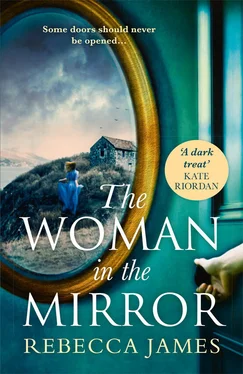
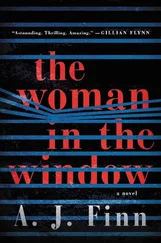


![Джеймс Чейз - The Mirror in Room 22 [short story]](/books/421068/dzhejms-chejz-the-mirror-in-room-22-short-story-thumb.webp)


